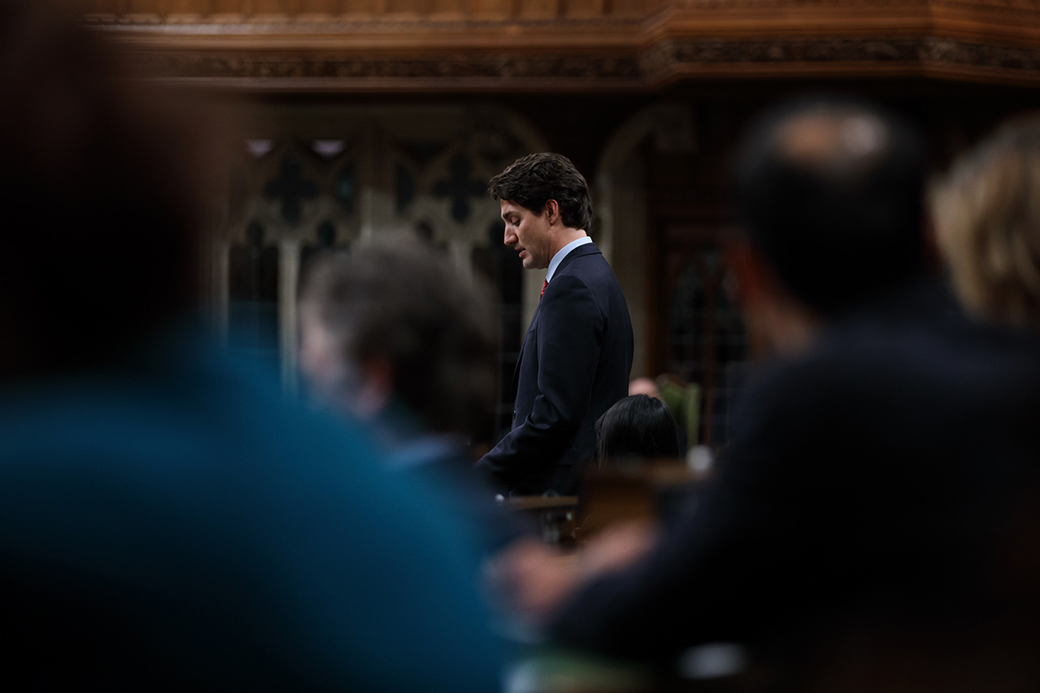Last week, some voices rose up criticizing Prime Minister Justin Trudeau about the list of apologies he has made since he took office in 2015. Some argued that his late father, Pierre Elliott Trudeau, would not have done so; in this patriarchal analogy, a son has to follow in the footsteps of his dad, whether he is right or wrong. Other critics insisted that apologizing to victims is a symbol of current attitudes which find fault in outdated traditions judged to be colonizing and discriminating by today’s standards.
As a victim of government policies of systematic discrimination towards Muslims after 9/11, I totally disagree with those arguments. Apologies are not merely monetary gifts won through a lottery ticket, or hollow words pronounced in public by teary politicians. They are crucial steps for mourning victims and supporting survivors. They are highly symbolic gestures that are instrumental in building a collective memory, defining our history as a country and restoring faith in institutions. On a personal level, I was adamant about seeing words of apology written down on paper. I keep this paper framed on my desk. The words represent a path of light for my children’s future, always mixed with the clouds associated with their names.
Acknowledging the wrongs of past policies is a crucial pillar of the accountability principle that underlies our democratic system. Our judiciary system is built on the notions of due process and personal liability of citizens and institutions. It is not a coincidence that many countries with difficult pasts (ethnic violence, corruption and apartheid) and which afterwards chose to enter the democratic circle held truth and justice commissions. These were not acts of vengeance or weakness or the defeat of some groups by others, but a strong signal to building a new social contract together on a level playing field.
When some criticize the redress and apology received by Omar Khadr, who spent more than a decade in Guantanamo, or Abdullah Almalki, Ahmed El Maati or Muayyed Nureddin, who were all tortured in Syrian jails with the complicity of Canadian law enforcement and intelligence services, these criticisms overlook the fact that the compensations and apologies didn’t arrive overnight on a silver plate. They didn’t miraculously happen because of a change of heart or a feeling of guilt. They came after years of judicial inquiries and legal battles. They came after years of public calumnies by anonymous sources. They came after years of physical and psychological torture. They came after families lived in anguish and social exclusion. They came after reputations were damaged forever. They came after employment opportunities became inexistent if not null.
Those voices should direct their criticism to the government policies that allowed such discrimination to take place in the first instance. When Muslim asylum-seekers are stopped at the border and questioned about how many times they pray a day or about their religious opinions on women’s headscarves, this is called religious discrimination. When young men are arrested in the street, frisked and asked to supply personal information just because of the colour of their skin, this is called racial profiling and carding. When men and women are rounded up at social gatherings or laid off from their jobs because of their sexual orientation, it is called sexual discrimination. When Indigenous children are separated from their communities and sent thousand of kilometres away from their families, prevented from speaking their native language and then physically and morally abused, this has a name: it is called cultural genocide.
When Canadian professor Hassan Diab was extradited to France in 2014 to face accusations of bombing a synagogue that were shown over and over in the court system to be unsubstantiated, and to say the least, untrue, very few voices rose up to ask Trudeau to call his French counterpart and explicitly request Diab’s release and return to Canada. The minute this Canadian citizen is able to return safely to Canada and eventually sue the government for abandoning him in jail despite eight French legal decisions to release him, then those voices will likely complain about how the government is wasting its tax dollars and throwing out apologies.
It is also worth mentioning the case of another Canadian, Abderrahmane Ghanem, who was a youth radicalized in Calgary but who didn’t join any terrorist groups or commit any violent acts. Nevertheless, while travelling to Algeria, his parents’ country of origin, he was arrested, charged and spent 13 months in prison, in very bad conditions. After his acquittal by an Algerian court, his Canadian lawyer, Gary Caroline, linked Ghanem’s ordeal to Algerians acting on information provided to them by the Canadian Security Intelligence Service.
As long as our systems allows injustice to happen, we are all responsible for these wrongdoings and one day, apologies are needed. It is up to voters to decide what kind of society they would like to live in and leave for their children. Is it an arrogant society looking at the past with nostalgic eyes, or a fair society that is ready to look at the past with critical eyes and ready to build a better future, even if this costs money and entails more public apologies?
Monia Mazigh was born and raised in Tunisia and immigrated to Canada in 1991. Mazigh was catapulted onto the public stage in 2002 when her husband, Maher Arar, was deported to Syria where he was tortured and held without charge for over a year. She campaigned tirelessly for his release. Mazigh holds a PhD in finance from McGill University. In 2008, she published a memoir, Hope and Despair, about her pursuit of justice, and recently, a novel about Muslim women, Mirrors and Mirages. You can follow her on Twitter @MoniaMazigh or on her blog www.moniamazigh.com
Like this article? rabble is reader-supported journalism. Chip in to keep stories like these coming.




